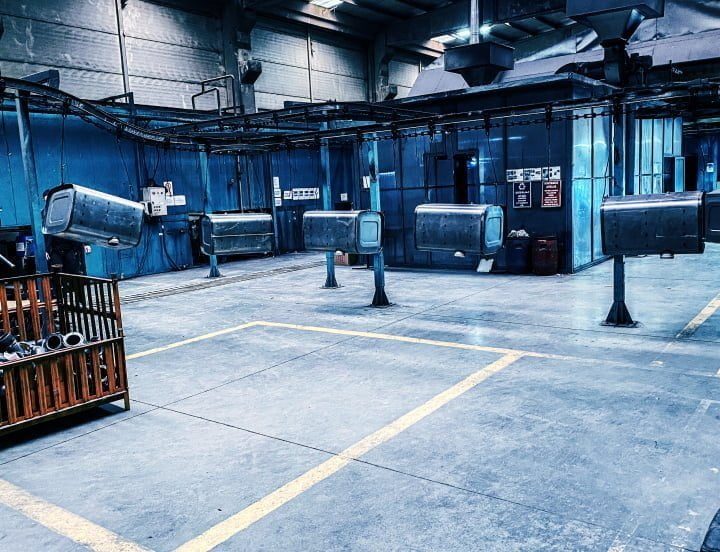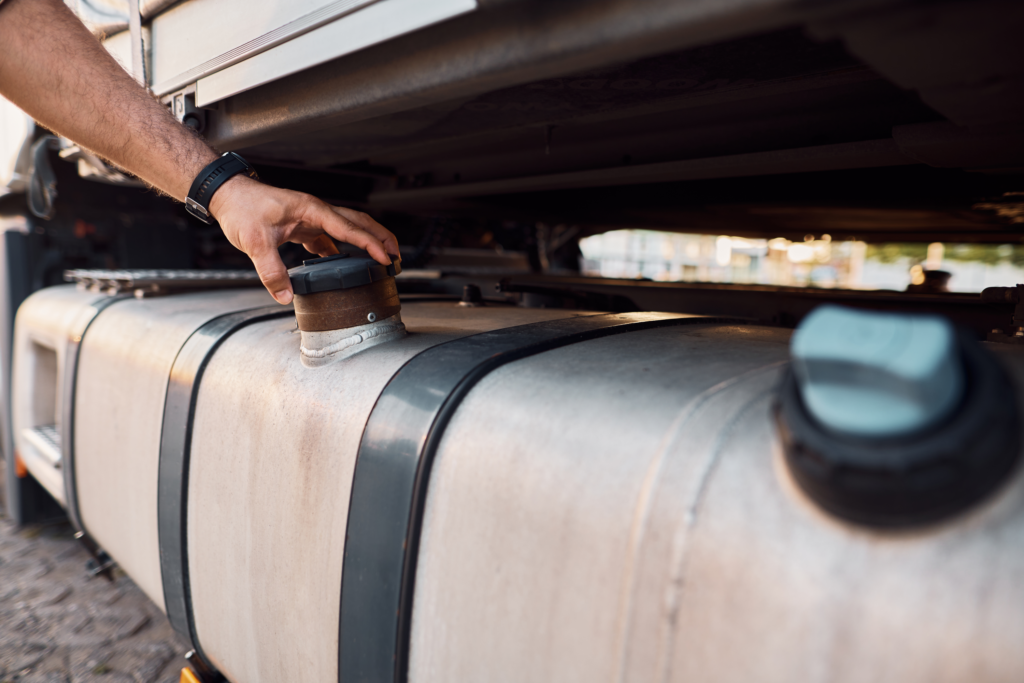A Guide to Choosing an Aluminum Fuel Tank for Your Heavy-Duty Vehicle
Heavy-duty vehicles are the backbone of the logistics and transportation industry. The uninterrupted and efficient operation of these powerful machines depends on many details. Although often overlooked, the choice of a fuel tank is one of the most important of these details. The right fuel tank not only determines the vehicle’s range but also directly affects operational costs, driving safety, and the vehicle’s overall lifespan.
How do you choose the right fuel tank for your heavy-duty vehicle? In recent years, aluminum fuel tanks have gained popularity and stand out with the advantages they offer. As SMTR Group, we have prepared a comprehensive guide to help you make this important decision. Here are the critical points you need to consider when choosing an aluminum fuel tank.
Why Aluminum Fuel Tanks Instead of Steel?
Although steel tanks have been traditionally common, the modern advantages of aluminum make it a smart investment for heavy-duty vehicle manufacturers and fleet owners:
- Lightness and Fuel Efficiency: Aluminum is significantly lighter than steel. The reduction in vehicle weight directly translates to fuel economy. A lighter tank allows the vehicle to travel a greater distance with less fuel, providing a serious cost advantage in the long run.
- Corrosion Resistance and Longevity: Aluminum is naturally highly resistant to rust (corrosion). This prevents the buildup of rust inside the tank over time, keeps the fuel system clean, and significantly extends the life of the tank.
- Superior Heat Conductivity: Aluminum disperses heat more effectively than steel. This property reduces the risk of fuel overheating, offering an advantage in terms of both engine performance and safety.
- Aesthetics and Brand Value: Aluminum tanks, with their shiny and clean appearance, add a modern touch to the vehicle’s overall aesthetics, strengthening the brand image.
5 Critical Factors to Consider When Choosing an Aluminum Fuel Tank
Finding the right product requires more than just looking for the “aluminum” label. Here are the key criteria that will shape your decision:
1. Material Quality and Wall Thickness
Not all aluminum is the same. The quality of the aluminum alloy used in tank production determines the tank’s resistance to impacts and road conditions. High-quality, certified alloys should be preferred. Furthermore, the wall thickness (sheet thickness) of the tank is a vital element for durability. The ideal thickness should be balanced according to the capacity and intended use.
2. Capacity and Size Compatibility
The fuel tank’s capacity should match your vehicle’s operational needs and range expectations. However, another issue as important as capacity is for the tank to physically fit the vehicle’s chassis perfectly. The mounting points, fasteners, and overall dimensions must be fully compatible with the vehicle’s original structure.
3. Production Standards and Certifications
A professional manufacturer produces its products in compliance with international quality and safety standards. When choosing a fuel tank, you must inquire about a certificate of conformity with internationally recognized regulations, such as ECE R34. These certifications guarantee that the tank has successfully passed critical tests for leakage, impact, and fire.
4. Weld Quality and Workmanship
The weakest link of a fuel tank is often its weld seams. Poorly or carelessly done welds can lead to leaks over time due to vibration and pressure. Smooth and solid weld seams, performed by robotic welding technology or expert craftsmen, are essential for the tank’s reliability and longevity.
5. Additional Equipment and Accessories
The tank is a whole. The quality of components such as the fuel float, ventilation systems, internal baffles (schwall) to prevent sloshing, a lockable tank cap, and mounting brackets are at least as important as the tank itself. These parts being fully compatible with the tank and of high quality ensures a trouble-free user experience.
Secure Your Investment
Choosing an aluminum fuel tank for your heavy-duty vehicle is a strategic investment made for the efficiency, safety, and profitability of your fleet. To get the best return on this investment, all details from material quality to production standards, workmanship, and size compatibility must be considered.
As SMTR Group, we produce aluminum fuel tanks that offer vehicle-specific solutions at the highest quality standards. Our expert team is ready to assist you in choosing the safest and most efficient fuel tank that best suits your vehicle’s needs. Do not hesitate to contact us for more information about our solutions that will add power to your vehicle.















